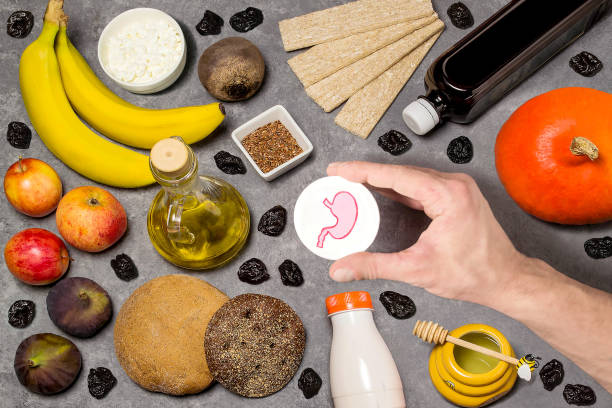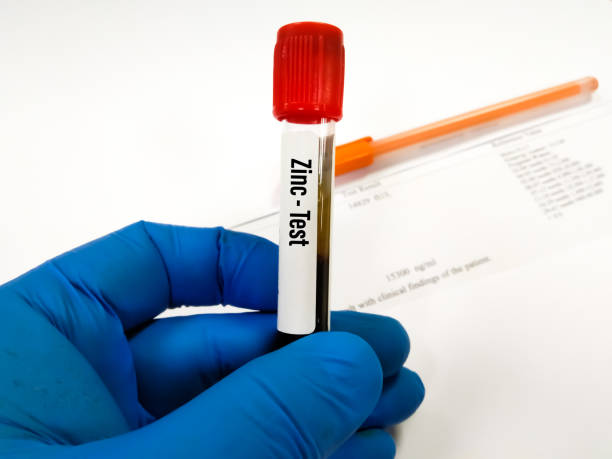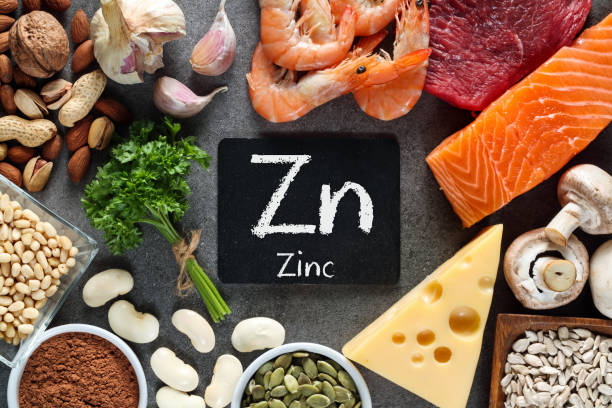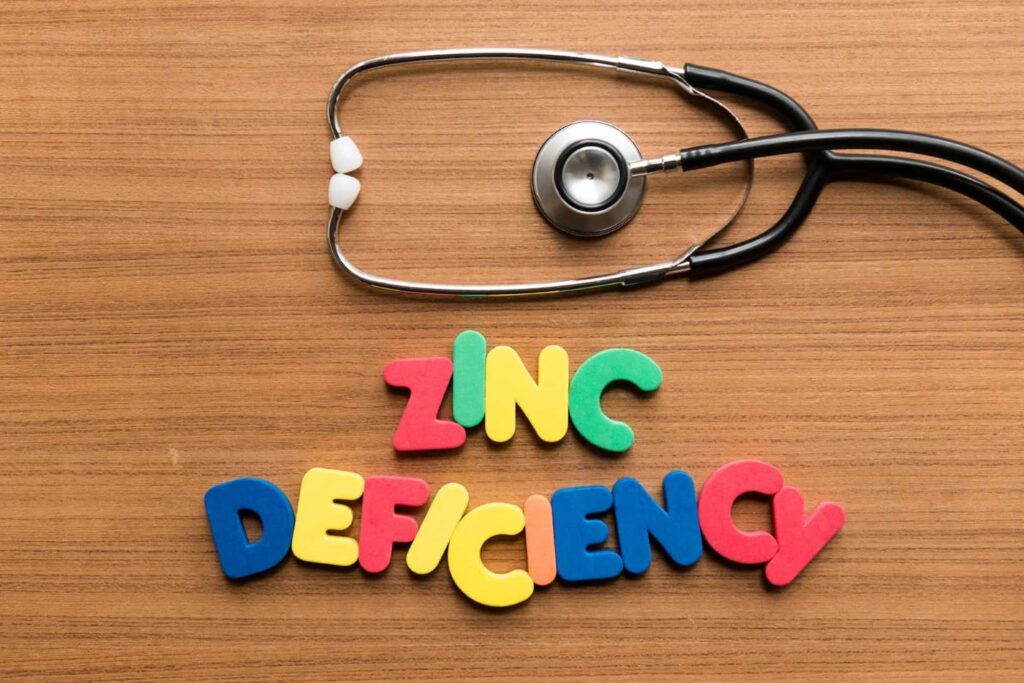Nutrition
Truth About Zinc Deficiency and Its Impact on Your Health
Understanding the intricate role of nutrients in maintaining optimal health unveils a profound insight into the complexities of the human body. Among these essential elements, zinc stands as a cornerstone, orchestrating a myriad of physiological functions vital for overall well-being. However, when the body’s zinc levels fall below optimal thresholds, a cascade of adverse effects ensues, manifesting in a spectrum of symptoms and health complications. From impaired immune function and delayed wound healing to changes in taste perception and growth retardation, a deficiency in zinc can wreak havoc on various systems within the body. This article delves into the multifaceted repercussions of zinc deficiency, shedding light on its far-reaching impact and underscoring the importance of maintaining adequate levels of this vital micronutrient for optimal health and vitality.

Symptoms of Zinc Deficiency
Zinc is an essential mineral that many enzymes and proteins in the body rely on to function correctly. A zinc shortage can cause a number of symptoms, ranging from minor to severe. The following are some of the most prevalent symptoms of zinc insufficiency.
Impaired Immune Function
One of the most essential roles of zinc in the body is to strengthen the immune system. A zinc shortage can cause a weaker immune system, making a person more prone to infections and illnesses. This can lead to symptoms like frequent colds, worsened asthma symptoms, and other respiratory infections.
Dermatological Issues
Zinc is also necessary for having healthy skin, hair, and nails. A zinc shortage can cause a range of dermatological problems, including skin rash (particularly around the mouth), delayed wound healing, skin ulcers, and hair loss. In rare situations, a zinc shortage might result in loss of taste and smell.
Growth Retardation in Children
Zinc is required for normal growth and development in youngsters. A zinc shortage can cause growth retardation and delayed sexual maturation. Children who are zinc deficient may face developmental delays and learning issues.
Loss of Appetite and Weight Loss
Zinc helps regulate hunger and maintain a healthy weight. A zinc shortage can cause a decrease in appetite, resulting in weight loss and malnutrition. In rare situations, a zinc shortage can result in diarrhea, which can contribute to weight loss.
In conclusion, zinc deficiency can cause a wide range of symptoms, from minor to severe. To maintain excellent health and avoid these symptoms, make sure you obtain enough zinc in your diet.

Causes and Risk Factors
Zinc is an essential mineral that is needed for a variety of physiological functions in the body, including growth, development, and immunity. A zinc shortage can be caused by a number of causes, including dietary inadequacy, malabsorption diseases, and increasing needs.
Dietary Insufficiency
Dietary insufficiency is the leading cause of zinc deficiency. The body cannot produce zinc, thus it must be received through diet. Foods high in zinc include meat, fish, dairy products, and whole grains. Vegetarians and vegans may be in danger of zinc shortage if they do not consume enough zinc-containing foods.
Malabsorption Disorders
Malabsorption problems can also result in zinc insufficiency. These illnesses disrupt the body’s capacity to absorb minerals, particularly zinc. Malabsorption disorders include celiac disease, inflammatory bowel disease, and chronic diarrhea.
Increased Requirements
Certain populations may have higher zinc requirements, which might cause a shortage if their dietary intake is insufficient. For example, pregnant and breastfeeding mothers require more zinc to promote fetal and newborn growth and development. Individuals with alcohol use disorder and those using certain drugs, such as diuretics, may have higher zinc requirements.
Overall, zinc deficiency can induce a variety of symptoms and raise the risk of various health problems. To sustain optimal health, enough levels of zinc must be consumed through food or supplementation.

Diagnosis and Treatment
Clinical Assessment
A zinc deficiency can be diagnosed through a clinical assessment by a healthcare provider. The assessment may include a physical exam, a review of the patient’s medical history, and an evaluation of their symptoms. Some of the symptoms that may indicate a zinc deficiency include slow wound healing, hair loss, and a decreased sense of taste and smell.
Zinc Blood Test
A zinc blood test is another way to diagnose a zinc deficiency. This test measures the level of zinc in the blood. A level below 70 mcg/dL is considered a deficiency. However, it is important to note that the results of this test may not always be accurate, as zinc levels in the blood can fluctuate throughout the day.
Zinc Supplementation
Zinc supplementation is the most common form of treatment for a zinc deficiency. Oral zinc supplements, such as zinc gluconate, can be taken to increase zinc levels in the body. The recommended daily intake of zinc for adults is 8-11 mg per day. However, the dosage for supplementation may vary depending on the severity of the deficiency. It is important to consult with a healthcare provider before starting any supplementation.
In conclusion, a zinc deficiency can be diagnosed through a clinical assessment or a zinc blood test. Zinc supplementation is the most common form of treatment, with oral zinc supplements such as zinc gluconate being the preferred method. The recommended daily intake of zinc for adults is 8-11 mg per day, but the dosage for supplementation may vary depending on the severity of the deficiency. It is important to consult with a healthcare provider before starting any supplementation.

Prevention and Dietary Sources
Recommended Dietary Intake
The recommended zinc intake varies with age and gender. The National Institutes of Health recommends 11 milligrams of zinc per day for adult men and 8 mg for adult women. Pregnant and nursing women may require more zinc. Children and newborns require different quantities of zinc according on their age.
Zinc-Rich Foods
Zinc is present in a wide range of foods, including meat, dairy products, nuts, beans, legumes, oysters, and seeds. However, the bioavailability of zinc varies according to the food supply. For example, zinc from animal sources, such as meat and shellfish, is more easily absorbed by the body than zinc from plants.
Here are some examples of foods rich in zinc:
- Oysters: Oysters are one of the best sources of zinc, with 6 medium oysters containing more than 30 mg.
- Meat: Beef, pig, and chicken are good zinc sources, with a 3-ounce portion of beef containing approximately 5-6 mg.
- Dairy: Milk, cheese, and yogurt are all rich sources of zinc, with a cup of plain yogurt containing approximately 2 mg.
- Legumes: Beans, lentils, and chickpeas are high in zinc, with one cup of cooked lentils containing approximately 2.5 mg.
- Cashews, pumpkin seeds, and hemp seeds are all rich sources of zinc, with a 1-ounce dose of cashews containing approximately 1.6 milligrams.
While a balanced diet can provide adequate zinc, some people may need zinc supplements to achieve their daily requirements. However, before taking any supplements, consult with a healthcare expert, since excessive zinc intake might result in toxicity.
Conclusion
Finally, zinc’s extensive network of physiological processes highlights its importance in supporting general health and well-being. The numerous symptoms and health consequences linked with zinc deficiency serve as a sobering reminder of the tremendous effects that micronutrient imbalances can have on the body. Inadequate zinc levels have a wide range of consequences, from decreased immunological function to poor growth and development. This article intends to raise awareness of the indications, symptoms, and consequences of zinc insufficiency, emphasizing the need to prioritize appropriate zinc intake through diet, supplementation, or medical intervention when needed. Empowering people with knowledge about the importance of zinc in maintaining optimal health promotes a proactive attitude to nutrition and well-being, paving the path for a healthier, more vibrant future.
Trusted Health, Wellness, and Medical advice for your well-being


